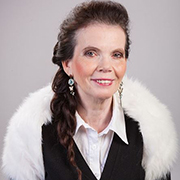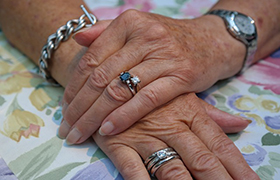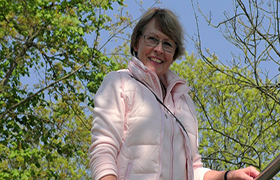Women's Health Topics
How old do you feel…60 years young or 60 years old? There is a lot of proof that indicates that your aging process is partly a personal choice. It is evident that a healthy way of life and preventive health care can lower or avoid health issues linked to aging.
You may have had some harmful habits all through your lifetime; but it is not too late to start activities that will improve your well being, and health today and in future years. This suggestion also applies if you experience a chronic medical condition; you can always make changes in life that will enhance your health.
Thinking of our elders aged more than 60 brought to mind retirement, Medicare and early bird dinner specials. Today, however, ladies in their 60s are going back to college, setting up businesses, running marathons and deriving pleasure from healthy sex lives.
The truth, however, is that following six decades of your body’s disintegration, you should anticipate decline in physical health. You should take more care of your body, though not only your physical health. You should focus on your sexual and mental health also. Sadly, we exist, in a society that reveres youth and does not treasure maturity, particularly in women.
When you are this old, you need to put in more effort compared to before, to maintain your sense of value, sexuality, and potential. Your feelings about aging play a vital role in the way you age. Yale University discovered that individuals who viewed aging optimistically have a longer lifespan compared to the ones who do not. It is easier for them to be in charge of their health and take responsibility for it.
The Repercussions of Life’s Choices
A lot of illnesses linked to aging arise from lifestyle choices such as not working out, smoking, chronic stress, and obesity. Family background of a medical sickness like a heart ailment, diabetes, cancer or obesity can play an important role also. Usually, ladies in their 60s shall be worried about these common health problems:
Heart ailment: In women, heart ailment is a common cause of disability and death. High cholesterol and blood pressure can cause strokes and heart attacks. Therefore, it is necessary to have your cholesterol and blood pressure checked often. If you are in danger, it is vital to sustain a healthy diet with less saturated fat, sodium, decrease alcohol intake to one drink only each day and avoid smoking.
Cancer: Fortunately, more individuals are living with different kinds of cancer for five or more years, and there is a reduction of cancer deaths. As you grow old, however, your danger of developing some cancers rises; for instance, ovarian, endometrial, colon, lung and breast cancers.
Detecting early and treating is crucial; therefore, be committed to consistent breast and pelvic exams (such as mammography). It is sad that certain cancers have limited or none early warning symptoms, for instance, ovarian cancer. Discuss your susceptibility to some cancers with your healthcare expert, mainly if you smoke. Even after smoking for years, there is always time to repair some of the harm.



Osteoporosis: In case you have not undergone a bone density scan, you need to have one by the time you reach 60 and more, to check your osteoporosis risk, which can cause breakages. If you are below 60+ but have experienced a fracture or have other risk elements of osteoporosis, you need to undergo a bone density scan immediately.
For decades, you have been going through bone mass reduction, which is standard regarding aging, particularly in the years that immediately follow menopause. By the time you are in your 60s, this rate might have begun to reduce; but you may still be facing an enormous risk. The happy news is that workout, medications and vitamins can assist to make your bones stronger at any age.
Sensory deterioration: As you grow old, your hearing, vision, and senses of taste and smell begin to deteriorate slowly, and this is normal. Today, The American Academy of Ophthalmology advises that between 40 and 64 years of age, grown-ups who lack risk elements of symptoms of eye illness should obtain a baseline screening. Then, depending on the outcomes of that first screening, an ophthalmologist shall prescribe the necessary follow-up checks.
If your age is 60+ or more, according to the American Academy of Ophthalmology, your eye doctor should carry out total eye checks every one-year or two to look for glaucoma, cataracts, diabetic retinopathy, macular degeneration and other eye issues connected to age. Eye conditions that are treatable, which are usual in old age such as cataracts that cloud the eye’s lenses, glaucoma and dry eye conditions where the eye has pressure buildup that can lead to blindness. Consult your healthcare expert about the appropriate screening for you.
Other conditions: A wide variety of medical conditions are present which can start in your 60s, or some health issues, which you have been able to control over the years, might become more recurrent or irritating. But, not all sure signs of aging may be symptoms of a severe issue. A suitable method is to find out from your healthcare expert what is natural and linked to growing old and what is not, keeping in mind your medical background and age.
For example, you might start to experience issues with bladder control; the weakening of ligaments and muscles in the pelvic area might trigger this. Usually, this is treated efficiently with particular workouts and diet changes. Gastrointestinal conditions like heartburn and constipation might worsen and having examinations is necessary if they happen often.
Some ladies in their 60s claim to have memory loss. You can assist to maintain alertness of your mind with activities such as playing a musical instrument or crossword puzzles. Pains and aches may be symptoms of arthritis or a different autoimmune sickness that mainly afflicts women.
Queries to pose to your Health Care Expert
Take advantage of your next appointment by preparing questions and worries. At times, it is hard to recall your thoughts when you are in a hospital. Therefore, it is wise to create a list of queries when you have them in mind. A tiny notebook kept inside your pocketbook shall be useful during those periods. Carry it to each of your appointments; it will make you confident about discussing your thoughts. Add these queries if they apply to you:
- Depending on my medical background and age, how many times should I have routine examinations and which screening exams should I undertake and when?
- Is a colonoscopy painful? How can I prepare for this procedure?
- What preparations do I make for a bone density exam?
- What step should I take if the exam reveals bone mass deficit?
- Does this signify that I will experience osteoporosis?
- Is it healthy for me to go on with similar workout program I have followed for years? Do I require any particular safeguards at my age?
- Sex is now painful. What is the problem and what action should I take?
- Women friends who are the same age as me have breast cancer and other cancers. I am scared that I will also experience it. Is this usual? What should I do to get peace of mind?
- Urine would pass when I sneezed or coughed. I am currently having problems at night controlling my bladder. How can I manage this issue?
- Buying medicine from the counter does not alleviate arthritis pain; however, I am worried about the dangers associated with prescription medication. What are the options available to me?
- If I require an exam or treatment, what is its aim and why am I advised to take it?
- What risks and side effects are present? What should I do to prepare for the process? Are other treatments or choices available? Is insurance going to cater for the treatment or exam? Whom should I contact to find out the exam outcomes (like a mammogram or a Pap exam) and when? (Always obtain a comprehensive report on any reviews you have had).

Essential Preventive Health Exams You Require
Since your risk of experiencing health issues rises with age, your health care regimen should be inclusive of more consistent preventive exams and screenings. It mainly applies if your risk is high or has a family background of medical issues or you experience severe medical illnesses. You need routine physical and gynecological exams once each year. Additionally, these tips apply to women who are in their 60s who are healthy. If your health is not good, ensure you obtain specialized care and exams that your healthcare expert prescribes.
Blood pressure exam for hypertension: If your blood pressure is regular, have it checked at least every couple of years and more regularly if it is 120/80 or more.
Bone mineral density test/Bone mass measurement: Suggested for ladies who have experienced bone breakage and are more at risk because of some medicine. Also, for patients with illnesses or conditions that are believed to have a connection with bone loss. After you attain 60+ years you need to have an examination and despite risk elements and follow-up scans, these should be carried out around every one or two years.
Cholesterol: Your blood cholesterol should be examined every five years or more regularly if you have risk elements for a heart ailment.
Clinical breast test: Take this test each year. Your doctor or another healthcare expert will check your breasts for any irregularities. This test is mainly a section of the yearly gynecological examination. BSE (Breast self-exam) is an alternative worth considering, apart from these clinical trials. But, a study has indicated that BSE is not useful in detecting breast cancer in contrast to locating a breast lump accidentally or even being aware of what is normal. If you opt to carry out a monthly BSE, enquire from your health care professional about how you can do one.
Colorectal cancer screening: You need to have colorectal cancer exam by utilizing one of the numerous varied screening techniques. Innumerable reviews that check for colorectal cancer exist, and they are split into two sections:
- Examinations that detect colorectal cancer and polyps.
- Ones that mostly identify cancer.
The American Cancer Society advises that on average, ladies who have a risk of colorectal cancer need to take the screening exams below, starting from 50 years:
Examinations that detect cancer and polyps:
- Colonoscopy – after ten years.
- CT colonography (virtual colonoscopy) – after five years.
- Flexible sigmoidoscopy after five years.
- Double contrast barium enema – after five years.
- Double соntrаѕt barium еnеmа after five years
In case one of the exams above is positive, a colonoscopy needs to be carried out.



Exams that mostly locate cancer:
- Fecal immunochemical test (FIT) – each year
- Fecal occult blood test (FOBT) – each year
- Stool DNA (sDNA) – duration unclear
Talk about choices and processes with your healthcare expert to establish the ideal screening technique for you.
Dental test: See the dentist often. Exams can reveal early symptoms of oral health issues and bone loss. Expert cleaning of teeth is also vital to avoid the mouth problems, and you should have this done every six to 12 months.
Diabetes blood sugar exam: You need to go through screening every three years; more than this or beforehand if you are fat or have other diabetes risks.
Eye test: Today, the American Academy of Ophthalmology suggests beginning at 40 years. Grownups without risk factors or symptoms of eye illness obtain a baseline screening.
Then, depending on the outcomes of that first screening, an ophthalmologist shall prescribe the necessary follow-up tests. At 60+ of age and more, you need to be tested every one or two years to look for glaucoma, cataracts and macular degeneration connected to age, eye illnesses, and diabetic retinopathy.
Exception: If you experience sight issues, family background of eye problems, and history of an eye injury or are diabetic, you need to be checked more often by a specialist in eye care.
Mammography: You need to have breast cancer screening with mammography every one or two years and get a yearly clinical breast exam.
Breast cancer screening guidelines are different: Therefore, discuss with your healthcare expert about what is suitable for you.
Pelvic exam and Pap test: Persist in obtaining a Pap test every three years or a Pap test as well as HPV test every five years. If you have undergone screening and had standard outcomes and do not have a high risk of getting cervical cancer, you should discontinue testing after 60+ years.
Exemption: If you experience risk elements like cervical pre-cancer, many sex partners, HIV infection or a weak immune system, you should get a Pap test each year. In case you have gone through a complete hysterectomy (extraction of your cervix as well as uterus) you can stop undergoing cervical cancer screenings except in situations where the operation was carried out to treat cervical cancer or pre-cancer. If you experienced a hysterectomy without extraction of your cervix, you need to go on adhering to the above guidelines.
Keep in mind: Avoid confusing your yearly or semi-yearly Pap test with a gynecologic test. ACOG (The American College of Obstetricians and Gynecologists) advises that all women the same age as you should undergo a genealogic examination, such as a pelvic exam each year.
Sexually transmitted diseases: If you have a background of Chlamydia or other STDs (Sexually transmitted diseases) or you or your partner have had many sex partners, consult your healthcare expert on whether screening for STDs such as HIV and gonorrhea is necessary for you.
Skin cancer skin exam: The American Academy of Dermatology advises that you should have skin examination each year. Recommendations are inclusive of performing a mole self-exam each month and observing sun protection to lower your risk of destroying your skin and getting skin cancer. If you have experienced skin cancer or are related to someone with a melanoma background, seek guidance from your healthcare expert for advice.
Thyroid test (TSH): There are different recommendations. The American Thyroid Association discourages having a TSH screening exam at 35 years then once every five years. The American Academy of Family Physicians does not advise screening patients who are not yet 60 years. Also, the U.S. Preventative Task Force says there is insufficient proof to recommend or discourage thyroid screening in grown-ups. Ask your healthcare expert for guidance.
Weight: Currently, obesity screening is believed to be a preventive exam. Request your healthcare expert for additional data on healthy weight advice or weight-control strategies.
Immunizations
Hepatitis A: This vaccine is suitable for grown-ups who reside, travel or work in regions where there is endemic of hepatitis and occasional outbreaks happen, or injection users or street drugs, institutionalized people, military personnel and the ones employed in those institutions.
Hepatitis B: The vaccine for Hepatitis B is recommendable for all grown-ups who are highly susceptible to infection. High-risk people include the ones who use injection drug and their sexual partners. Any person with a background of many sexual partners in the last six months or who has experienced a sexually transmitted disease recently, people with a health-connected job with regular contact with blood products or blood and tourists to states where HBV (Hepatitis B virus) is of significant concern.
Herpes zoster: Get vaccinated just once when one is 60 years (or more if not carried out at 60) to avoid shingles.
Influenza: Have an influenza vaccination each year.
Pneumonia vaccine: At 60 years and more, you need to get immunized against pneumonia. You might require the immunization when younger if you smoke or experience some chronic medical illnesses. Consult your healthcare expert.











